Amber K. Stott is founder and chief food genius of the nonprofit Food Literacy Center. She’s creator of the California-wide Food Literacy Month and a freelance food writer. She’s been named “Food Revolution Hero” by Jamie Oliver Food Foundation, Food Tank’s 20 Innovators Protecting the Planet and a TEDx Sacramento Changemaker Fellow.
By this person
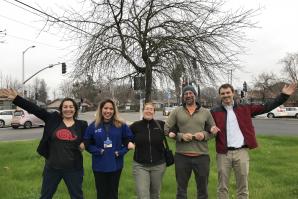
Oak Park Wins the Bulk of the 2017 Creative Economy Grant for Food-related Projects
Sacramento’s Oak Park neighborhood brought in the bulk of the winning food-related projects, including a mural that will direct CalFresh (food stamp) beneficiaries to shop at their local farmers market, a high school sidewalk beautification project, and an urban farming training and demo garden. Here’s the projects getting a boost:
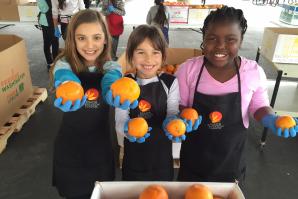
The Capital Region’s Food Systems 101
How nonprofits improve local health, the environment and economy
In America’s farm-to-fork capital, it’s easy to place attention on the fork side of the story – the amazing chefs and restaurants feeding us. Yet, there’s a complicated web of grassroots services, part of a larger food system, which covers everything including health, environment, economy, social justice and more. Nonprofits provide core services that keep this delicate system moving toward a better community. Comstock’s explores this side of Sacramento’s local food network.
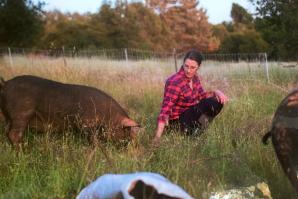
Meet Three of the Capital Region’s Women Farmers
While California boasts some of the highest numbers of female farmers in the U.S., at 33 percent of the state’s total farmers, that’s still only one in seven farmers. Yet, the women who have chosen this profession don’t see themselves as statistics. They see themselves as hard workers feeding their communities.
Comstock’s recently spoke with three women about the joys and challenges of running small farms.
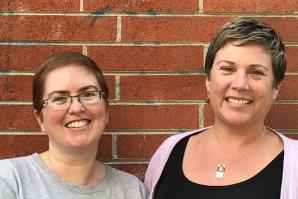
Alchemist Switches It Up
Sacramento-based community development corporation selects new executive director
If Davida Douglas had one word to describe her ideal Sacramento community, she would choose “equitable.”
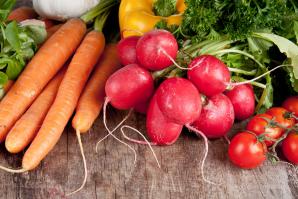
Keep Your Eye on These Food Policy Bills
Since 2012, there has been a significant spike in the number of food policy legislation and ordinances passed at the state and local levels.
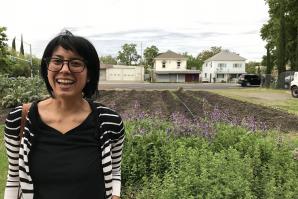
First Mother Farms Launches in West Sacramento
Graduate of California Farm Academy branches out into business ownership
For every 1 farmer over age 25, there’s 5 over age 75, according to the U.S. Department of Agriculture. America’s farmers are aging out of the business that feeds us, and Center for Land-Based Learning is focused on resolving this problem before it’s too late. To date, they have trained 96 future farmers, 17 of whom have purchased their own land and started farms.
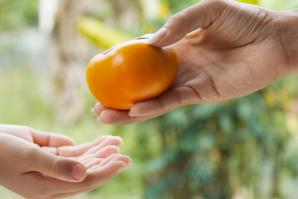
Farm-to-School Programs Make for Healthier Children
Federally-funded programs translate to sustainable farms and healthier children. Yet, despite improved efforts, funding remains lower than demand. In a state that produces half of the nation’s fruits and veggies, California stands to benefit by funding these programs.
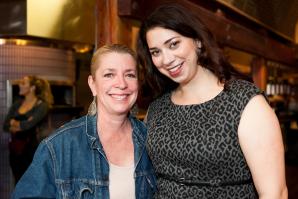
Nicole Rogers on Telling the Story of Food
Sacramento’s farm-to-fork director leaves for job at Nugget Markets
Rogers has hung up her fork and picked up a grocery basket. She will be Nugget Markets’ first director of marketing and communications, serving stores in 12 cities in the Northern California region.

Supervisors Taking Up the Urban Ag Vote
Sacramento County considers changes to allow for urban farming
In 2012, Valenzuela Garcia helped form the Sacramento Urban Agriculture Coalition to change laws that impede urban farming by first identifying the political barriers to growing food in this environment. The long list included issues such as holding farm stands on residential sidewalks, raising chickens and keeping beehives.
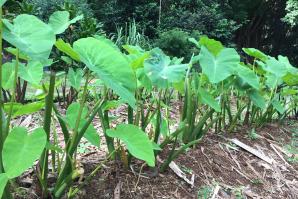
Hawaii By the Bite
The island state’s farm-to-fork story is much broader than the pineapple
On the plane to Hawaii, pictures of dolphins and clear blue beach water tempt eager travelers. Flight attendants’ uniforms include plumeria flowers in their hair. The tangible experience of aloha begins 10,000 feet above sea level, long before anyone’s snorkels touch the Pacific Ocean. Hawaii is not only a draw for beach-goers. It’s also a delicious destination for vacationers like me: food adventurers in search of what the locals grow and eat.

What’s for Dinner?
Ann Evans, a founder of the Davis Farmers Market, updates her cookbook
The Davis Farmers Market was founded in 1976 by a group of residents that included Ann Evans, local author, publisher and consultant. She’s still involved with the market today and wants to inspire more people to shop and cook seasonally.

All Aspects of U.S. Food System Come Together for Farm Tank
Sacramento hosts inaugural event to address tough questions in the food system
When Sacramento declared itself the Farm-to-Fork Capital of America in 2012, it opened a floodgate of introspective conversations across the region. How do we truly lead in agriculture?
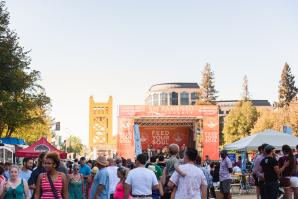
Farm-to-Fork Offers Veggie-Studded Lineup
Month-long celebration features inaugural Farm Tank Summit
Now in its third year, Sacramento’s Farm-to-Fork month features events to stimulate your appetite and your curiosity. The Sacramento Convention and Visitors Bureau promises more beer, an innovative conference and plenty of delicious tacos with locally-sourced ingredients.

Chanowk Yisrael Talks About Changing the ‘Hood for Good
Founder of Yisrael Family Urban Farm wants more urban farming
Chanowk Yisrael wants to change the ‘hood for good. That’s his motto. But what does it take to truly transform a community through gardening?
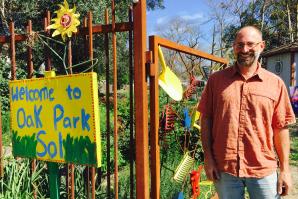
Oak Park Sol Brings Nature Back to City Dwellers
New urban land trust builds community gardens, holds cooking classes
Oak Park’s Broadway throbs as bass bumps from one car and another’s engine belches. Someone honks their horn. Other cars buzz by well above the speed limit. This is urban living. But it doesn’t have to be. Thanks to Oak Park Sol, a newly-formed nonprofit serving as an urban land trust, this neighborhood is bringing nature back to its city-dwelling folks.

The Waiting Game
Sacramento City Unified’s central kitchen slow to progress
In Sacramento, school cafeterias don’t have the equipment or capacity to store and prepare fresh, local food. They’re designed mainly to warm frozen, processed food, some of which is full of additives and preservatives.

An Interview with the ‘Gangsta Gardener’
Urban gardening superhero Ron Finley recently screened his documentary in Sacramento
Ron Finley deemed himself the “Gangsta Gardener” with pride.He recently paid a visit to Sacramento’s urban gardening community for a screening of his documentary film, “Can You Dig This” at the Guild Theater, an event hosted by the Yisrael Family Farms. He took a moment to chat with Comstock’s about how gardens can improve communities.
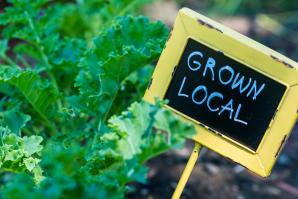
Millennials in the Food Movement
Ideas that are turning the food industry on its head
When it comes to food, millennials are twice as likely as any other generation to give a whisk about organic and locally-sourced meals. Some even credit millennials’ disdain for junk food with the downward fiscal spiral of the country’s top 25 food and beverage industries. Though it may seem simple, these ideas are turning the food industry on its head.
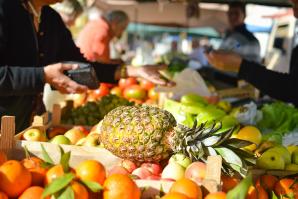
The High Cost of Cheap Food
The problem with calling the food movement ‘elitist’
Americans spend very little of our overall incomes on food, only 10 percent, allowing us more expendable income than people in many other countries. In France and Japan, they spend 14 percent on food, and in the Philippines they spend 40 percent. In a system where food jobs rely on the success of food sales, cheap food creates a vicious cycle of poverty. Not surprisingly, the adverse is also true: More expensive food can create better jobs.
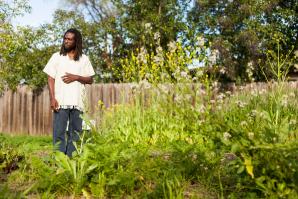
Sacramento Urban Farmer to Start Food Academy after Visit to Milan
South Sacramento urban farmer, Chanowk Yisrael, wants to see local food systems improve. Eight years ago, he started growing organic food for his family and eventually launched the Yisrael Family Urban Farm in Sacramento’s historic Oak Park neighborhood. Now, he’s expanding that vision to motivate Sacramento youth to become more engaged in changing our local food system — announcing today that he’ll be partnering with Slow Food Sacramento to charter the city’s first Food Academy.

Scott Ostrander is a Chef on the Move
This Sacramento native returned home on a farm-to-fork mission
When Scott Ostrander heard that Sacramento had declared itself America’s Farm-to-Fork Capital, he was working at Alinea, a 3-Michelin-star restaurant in Chicago. As a Sacramento native and an advocate of food-literacy education, he took the news as a sort of pied-piper call to return to his roots.
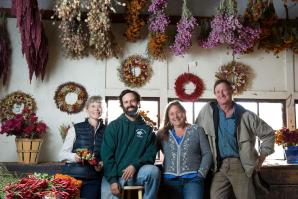
Harvesting a Heritage
At Full Belly Farms, succession hinges on the creativity of younger generations
Every week, 330 American farmers leave their land for good. And as an aging population of baby-boomer farmers retire, their jobs aren’t being filled quickly enough. Only six percent of all farmers are under the age of 35. But as the national food movement strengthens, will we see a return to farming? What about the children of these aging farmers — will they love their farm land or leave it?
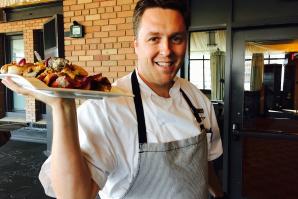
First Taste of the Farm-to-Fork Gala Dinner Menu
Diners will enjoy local flavor and a new twist on an American classic
Yesterday I had the joy of tasting a preview of the coveted menu, unveiled yesterday, for the Farm-to-Fork Gala Dinner on Tower Bridge. If you were able to snag a ticket to the event, there’s a lot to look forward to.
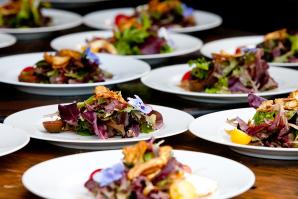
6 Farm-to-Fork Events You Might Miss (but Shouldn’t!)
Get your foodie on, off the grid
Here’s the beat on six unique events that will get you out of traditional city spaces for a combination of farm and urban culinary experiences, beginning in Farm-to-Fork Month and extending into the fall harvest season.

Something Fishy in Sacramento
Community-supported fishery opens pick-up site in Oak Park
The next big splash in local food is coming from the ocean. Anna Larsen’s subscription fish box company, Siren Fish Co. keeps an eye on sustainability.

Eat the Ugly Fruit
The importance of dining conservatively during a drought
Sacramento is a thirsty region. From agriculture to restaurants kitchens, our food system slurps down a big chunk of our existing water supply. The looming question is how each of us can partner with these industries to conserve.

Summer Feeding
Local libraries are valuable tools in addressing issues of food access
Your next visit to the public library might not be to check out a book. Libraries are becoming critical agents in a sprouting local food movement, so you might instead bite into an actual meal, join a cooking class or even check out garden seeds.

It’s Hip to Be a Foodie
What dressing for success means in the food movement
To find the kind of innovative employees needed to continue pushing the food movement forward, it’s important to look as much as listen. For instance:
“This position requires a vegetable costume as occasional work attire.”
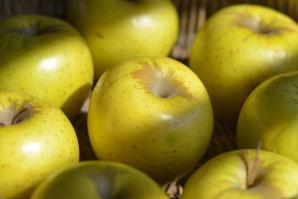
The Great Big Local Food Movement
As more consumers demand local fare, large food services and producers shift focus
Can large institutions, like college campuses, get involved with farm-to-fork? Can they leverage their buying power and still provide a local food experience on a large scale? Customer influence is making an impact on big buyers, inspiring sizable companies and organizations to launch full-tomato into buying local.

A Call for Greater Food Literacy
What I learned and confirmed by cooking for celebrity chefs
Today there are two generations of Americans who don’t know how to cook. Processed food diets are a leading cause of rampant childhood obesity. There is a clear need for increased cooking and nutrition education, or food literacy, in schools.
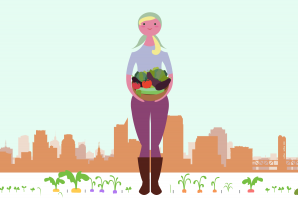
The Battle for Urban Ag
Community organizers fight for rights to sell the food you grow
In a county where 218,510 residents are food insecure (meaning they don’t know where their next meal will come from), and where a local food bank will distribute groceries to 40,000 individuals each month, food activists are continually innovating ways to break the cycle of poverty—for good. The solution is actually under our feet: the soil.



